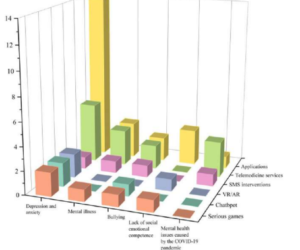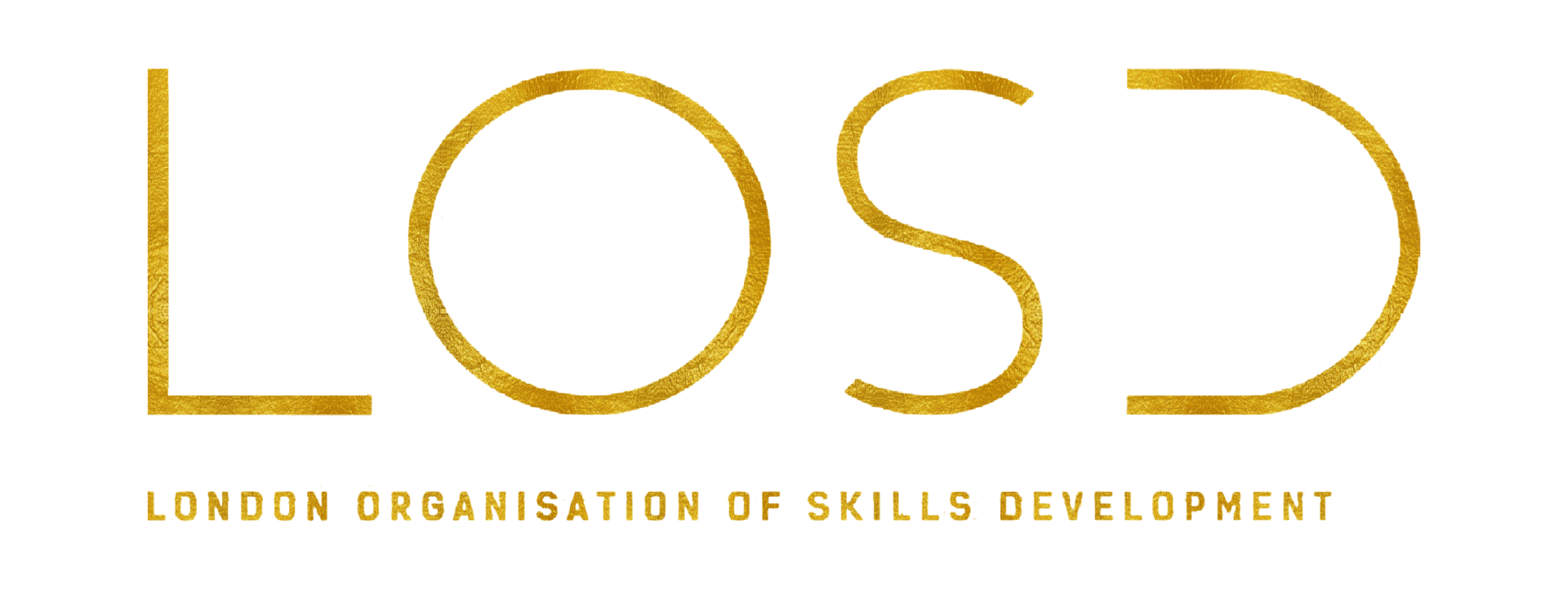Research Objectives
To respond to contemporary challenges that stem from technological advances and have significant psychological consequences by ad- dressing them from the developmental and cross-cultural perspective.
Keywords
Digital, Technology, Psychology, Brain, Mental Health.
Bio
Prof. Dr. Parin Somani
Prof. Dr. Parin Somani, Director of LOSD, is a distinguished Academic Scholar, TEDx Speaker, and Author, honoured the title of Mrs Universe 2022 and crowned by Bollywood Actress Mahek Chahal. With 2 Academic and 6 Honorary Doctorates, she’s a multi- award-winner and humanitarian. She is a prolific author of 19 books, and a record-breaker recognised in Guinness World Records and multiple prestigious record books. She was invited to deliver a Keynote Speech at Harvard University, Cambridge University and many more. In her global travels to 127 countries, Prof. Dr. Parin Somani tirelessly contributes to education, women empowerment, and youth development.
Roxanne Boodhoo
Roxanne Boodhoo is an accomplished professional with a diverse and versatile background. Her extensive academic training has equipped her with a wide range of skills and knowledge, enabling her to excel in various roles. Roxanne is known for her strong work ethic, diligence, and commitment to undertaking any responsibilities assigned to her. She is deeply passionate about helping and supporting others, making her a compassionate and empathetic individual. Throughout her career, Roxanne has consistently demonstrated a dedication to making a positive impact, whether through her professional work or community involvement, striving to uplift those around her.
Abstract
The study of the impact of digital technology on psychological processes has been discussed by various scientific disciplines, including neuroscience, cognitive psychology, sociology, and psychiatry. Technological advancements are increasing at a pace unimagined. The consequent changes in lifestyles are inevitable. These underlying changes in day-to-day routine have been going on over the past 20–30 years or so, but they did not become as apparent as during the COVID-19 pandemic. Today a large portion of our everyday lives, work, play and social activities are channelled for virtual strata of different experiences. Overall digital life is becoming a dominant part of our personalities and ways of living.
The overall aim of this study is to bring together some of the latest research that examines the impact of technology on the human brain and the cognitive processes directly linked to the human brain. Via pro- viding up-to-date research approaches, it allows us to better understand how technology can impact our mental states and what we can do to keep our mental health in the digital era.
In just one generation, digital technology has transformed human life. People are now connected not only to each other but also to a digitized world. As a result, by becoming a part of the digital age, our brains are used as rarely before, and researchers have begun to investigate how our brains and cognitive functions are changing as we become ever more immersed in the digital age.
Introduction
In current times, technological advancements are increasing at a pace unimagined (Jusup et al.,2021). The consequent changes in lifestyles are inevitable. These underlying changes in day-to-day routine have been going on over the past 20–30 years or so, but they did not become as apparent as during the COVID-19 pandemic. Today a large portion of our everyday lives, work, play and social activities are channeled for virtual strata of different experiences. Overall digital life is becoming a dominant part of our personalities and ways of living. The article discusses the psychological implications of these shifts. The impacts of absorption of new communication technologies, such as the internet and mobile phones, and online interactions, such as cyberbullying, sexting, and digital addictions, on psychological processes and well-being will be presented.
During the COVID-19 pan- demic, the introduced long-term isolation, and hybrid systems of education and workplace operations produced new ways of operating, struggling, and creating requirements. What appeared to be temporary solutions for many, quickly started to flip the way normality and virtual reality began to oscillate between each other. The isolation and loneliness imposed by long-lasting quarantine and restrictions showed the importance of understanding not only the effects, but also devel- oping earlier on adequate supporting strategies for individuals and families (Horan, 2023).
(Mohammed, 2023) Parallelly to the scientific developments and the acceptance of e-learning and telemedicine, the question of distancing and isolation, as well as issues of support and coping strategies moved into the focal point of global society together with its virtual environments. In this regard, universities and academic institutions should have had a substantial role in the production of new fields of research and strategies, and in the reconstruction of the curriculum in a transdisciplinary and interdisciplinary way. Such responsible institutional use and re-direction of knowledge should have been capable of preparing students for the challenges waiting for them in the future and introduced ways of eating healthy, living in a responsible way, coping with stress, and organising their everyday lives and work more consciously. For this, it was necessary to have educational programs and to support research projects that focus both on technology and on the required protective behaviours in health and safety.
Aim
In a dynamic, high-speed, competitive lifestyle, technology plays an important role in the operations of society, economics, and cultures. At the same time, buildings, transportation systems, cities, factories, and homes have become smart and technologically embedded. Along with all this technological advancement, there is a disconnection from social lives and family domains due to such factors as social media, technological tools, the saturation of internet use, and other screen-based virtual representations of realities.
Nowadays, we have initials like ‘digital natives’ and ‘digital immigrants’ due to their approaches towards technological factors (Timea Fülöp et al., 2022). Technology is thus considered a double-edged sword that cuts unconstructively both in personal and private lives, as well as in societal disciplines. Germany, whose Ministry of Innovation descriptively and markedly referred to “the age of a digital society”, in 2018 published a report and risk analysis while pointing out that in today’s “technology-saturated society” factors such as “stress, anxiety, sense of lost, risk of addiction, (emotional and psychological) distancing, and intergenerational separation” have become present risk factors.
The aim of this study is to respond to contemporary challenges that stem from technological advances and have significant psychological consequences by addressing them from the developmental and cross-cultural perspective. It draws attention to technological issues, such as internet addiction, cyber- bullying, and the use of new technologies in health, a s well as problems connected with an illness as a new way of experiencing matter and a unit of the family system. (Caponnetto & Milazzo, 2019) Alongside the potential threats associated with the use of new technologies, it shows the developmental and cross-cultural perspectives that change the perception of the world and ourselves. E-health is much more than a new way of treating. It is also a completely new model of subject–environment relationships, giving everyone a sense of agency in their health preservation and provides new means of empowerment.
2.0 Methodology
A mixed-method study was employed to explore the feasibility and acceptability of using online and mobile technology to deliver expanded treatments for mental health compared to standard treatments, frequent barriers to use, facilitators, and barriers to use (Mohammed, 2023). The primary aims explored young males attitudes towards seeking professional mental health services, and towards using online and mobile technology to address mental health issues. In addition, extensive literature searches have been carried out to examine literature within books, journals and credible literature sources. The outcomes of this study will inform future interventions, novel strategies for increasing treatment use among this group, and service provision for young men with mental health problems.
3.0 Results
Cyber Health Psychology: A technological progress has profoundly influenced the rapidity of change and revolutionised communication and relationships (Caponnetto & Milazzo, 2019). The impact of the digital age has impacted on every sector, including the health and wellness sector. This process has also had a major influence on mental health and well-being. It is there- fore extremely difficult to study the psychological processes of individuals within this cyber-social or cyber-physical space, as the origin of these comes from the impact of technology. Figure 1 illustrates the number of studies categorised by mental health issues and technology interventions. The findings indicate that apps are the most prevalent form of digital technology, particularly for addressing depression and anxiety. Telemedicine services also rank highly in terms of utilisation. In contrast, there are comparatively fewer instances of virtual reality (VR), augmented reality (AR), chatbots, and serious games. The following sections delve into the specifics of digital technology applications and their unique affordances, tailored to distinct mental health issues.

Fig. 1 (Chen, T,. et al, 2024)
Cyberpsychology
therefore, becomes an essential form of study for understanding these phenomena and the psychological adaptations occurring with digital communication, emphasising also health and illness repercussions. The ability to adapt to changes in the context of the phenomenon is crucial in the definition of polymedia literacy.
Book Review: The mental health and well-being approaches are a new form of awareness that guides public policies and requiring many professional and personal skills in the management of intrapsychic criticalities (Zsila, 2016). This study explores the modernity of digital health and psychotherapy that enable people and professionals to better manage the meaning of these processes. Given the future scene, the volume is capable of providing new support to address a multi-method study on the efficacy and convenience of psycho- logical approaches in the digital era. Modern and quantitative results on the fusion of clinical and digital interventions are import- ant for new philosophy.
Behavioural interventions: are crucial for a range of mental health problems and CFHI can play a major role in this area of research interest as its clients have a high prevalence of co-occurring substance use disorder, which can be difficult to treat using traditional face-to-face mental health interventions. Other metanalysis also demonstrated similar outcome effect. However, previous results from the meta-ethnography highlighted how potentially negative, as well as potential positive outcomes, can result from technology use in relation to mental health. This focus of these meta-ethnography on users of technology (carers and healthcare professionals) suffered from the drawback of excluding the views of the technology users themselves, recognising the importance of digital technology in the context of the Covid-19 pandemic.
Digital technology and well-being: are interconnected, influencing each other (Ros Bangun et al., 2021). Digital technology has had a significant and direct impact on people’s sense of well-being as it influences people’s activities, either personally or professionally, during the contemporary era (Kroenke, 2002). With inter- net penetration, use of digital technology prevalence has increased around the world and thus society spending more time in the digital environment.
There has been an increased interest in as well as professional focus on the relationship between people, technology, and their well-being. Today’s digital world has broadened the statistics with prolific professionals interested in computers, smartphones, and especially the internet in business and education. Like other professionals, lecturers have studied the impact of technology on their careers and the significance of these technologies. S. Ticha examined 194 lecturers in universities and universities of advanced technology in Poland to find that digital technology is of utmost significance to academia.
Digital communication, digital technology and its services: have witnessed significant improvements under the COVID-19 pan- demic. Lockdown situation, and a lack of connectively on the ground have helped promote digital platforms and services. Therefore, institutes have no option but to replace conventional way with digital technology to distribute knowledge and to be in touch with the instructed.
Digital service usage has proven to be dynamic. There are pre-requisites to fulfill and challenges for computer users because of a domination of digital technology. For instance, the knowledge of the hardware, software, net- work and programming languages is necessary for the job market. Therefore, they have made a special place of professions that deal with information technologies in themselves practicalities.
Technology has the potential of altering psychological processes of individuals. Affective and cognitive susceptibility is common among the young population under the exposure of technological means. If not managed well, the free access of technology can distract its users’ attention and hinder with cognitive processes (Pitt et al., 2021).
This research supports earlier findings, which have confirmed the importance of cognitive aspects with the direct or indirect influence of attitude and a short form of emotional intelligence. Digital naïve individuals were directly linked with information literacy, digital communication and digital technology service usage. It has been postulated that while technology gives an opportune moment to individuals to convincingly present their insights, it also offers a behavioural platform to sarcastic behaviour.
Empathy has depth and an astonishing influence on understanding employer behaviour. It has an impact on self-identification with one’s own behaviour and motivation among the professional in their work environment (Ros Bangun et al., 2021).
Discussion
Emotional continually coping behaviours are a fixed link which can be directly interpreted as individual’s somatic reactions or ideosomatic behaviour.
Results show that the adoption of digital technology has become the main source of increased screen time. Excessive screen time has been frequently associated with negative emotional state: anxiety and depression.
Those impacts on individuals readiness and willingness to adopt digitised technology as a side present a dangerous trend of mental health recommendation. Immunity seems to decrease, while at the same time the trust in science and technology seems to degrade. The back reaction is individual avert and emotional resistance, when affective well-being is affected, and adjusting to the situation is hindered, by affecting cognitive and emotional factors, screen time solidifies into negative mental health effects (Ienca & Malgieri, 2022).
The discussion will overview and summarise the implications of psychological research for several central themes, key questions, and potential future opportunities. Several issues associated with mind digitalisation are addressed in the current review. We consider first the toll that increased screen time takes regarding children and adolescents and consider how it impacts attention, mental health, and academic performance (Cardoso-Leite et al., 2021). Among children between the ages of 3 and 5, screen time of two hours daily significantly predicts externalising problems by first grade. Similar associations are found in adolescents, where television viewing and video gaming is related to behavioral and emotional problems. A meta-analysis also shows the detrimental effects of problematic screen time on academic achievement.
Conclusion
Digital technology has invaded social, professional, and family life (Butler, 2024). This has contributed to an acceleration of learning processes by increasing the possibilities of access to the most varied contents and knowledge. A variable that significantly recurs in virtual reality, and devices offers a glimpse of the great potential which, in the future they could reach in this sense especially if we think of the forth- coming times when 5G connections will spread. It would be right, to this aim, to affront the problems, perhaps still very remote, raised by the constitution of what will be called a sort of “Digital Afterlife” , which concerns the problem of the dissipative nature of the computation that could not be neglected if a not directly connected process neither to a specific physical support nor to the one operating in the limits of the traditional quantum mechanics. whose presence is lacking in the real/physical world, concerns the self-tracking: thanks to the many apps present, through the digital mediation, it is possible both to monitor and to improve the personal health. It is quite evident that beyond technological evolution there has been a profound impact, and still on-going conventional (in a certain sense) social evolution: the modern digital world we are living in, the so-called “meta-moiety” in fact, offers both objective and subjective changes in the environment where inhabitants share their lives (Cebo, 2021). It is necessary to think a future where digital information carriers become “immutable” throughout “genetic inheritance”. The personal identity in the digital environment will be part of the genetic identity, changing the notion of “bio-identity” to a radically different concept which we call Global Identity. Modern technological potential has been directed to offer such devices to the self-centred imitators as to be provided with technological artifacts able to delude the interlocutor on their own biological nature (Mohammed, 2023). The recent dissemination of the most varied smart.
References
Butler, T. (2024). A Critical Review of Digital Technology in Education: A Pause for Thought in 2024. osf.io
Caponnetto, P. & Milazzo, M (2019). Cyber Health Psychology: The use of new technologies at the service of psychologycal well being and health empowerment. ncbi.nlm.nih.gov
Cardoso-Leite, P., Buchard, A., Tissieres, I., Mussack, D., & Bavelier, D. (2021). Media use, attention, mental health and academic performance among 8 to 12 year old children. ncbi.nlm. nih.gov
Cebo, D. (2021). Scientific Relevance and Future of Digital Immortality and Virtual Humans. [PDF]
Chen, T., Ou, J., Li, G., & Luo, H. (2024). Promoting mental health in children and adolescents through digital technology: a systematic review and meta-analysis. ncbi.nlm. nih.gov
Horan, T. (2023). The Effects of Urbanization and Social Media Use on Individuals’ Perceived Social Isolation. osf.io
Ienca, M. & Malgieri, G. (2022). Mental data protec- tion and the GDPR. ncbi. nlm.nih.gov
Jusup, M., Holme, P., Kanazawa, K., Takayasu, M., Romic, I., Wang, Z., Gecek, S., Lipic, T., Podobnik, B., Wang, L., Luo, W., Klanjscek, T., Fan, J., Boccaletti, S., & Perc, M. (2021). Social physics. [PDF]
Mohammed, H. (2023). Technology in Association With Mental Health: Meta- ethnography. [PDF]
Pitt, C., Hock, A., Zelnick, L., & Davis, K. (2021). The Kids Are / Not / Sort of All Right. [PDF]
R. Hoehe, M. & Thibaut, F. (2020). Going digital: how technology use may influ- ence human brains and behavior. ncbi.nlm.nih.gov
Ros Bangun, Y., Pritasari, A., Budyanto Widjaja, F., Wirawan, C., Wisesa, A., & Ginting, H. (2021). Role of Happiness: Mediating Digital Technology and Job Performance Among Lecturers. ncbi.nlm.nih.gov
Timea Fülöp, M., Odett Breaz, T., He, X., Aurelian Ionescu, C., Silviu Cordoş, G., & Geanina Stanescu, S. (2022). The role of uni- versities’ sustainability, teachers’ wellbeing, and attitudes toward e-learn- ing during COVID-19. ncbi. nlm.nih.gov
Zsila, Ágnes (2016). Book Review. ncbi.nlm.nih.gov




